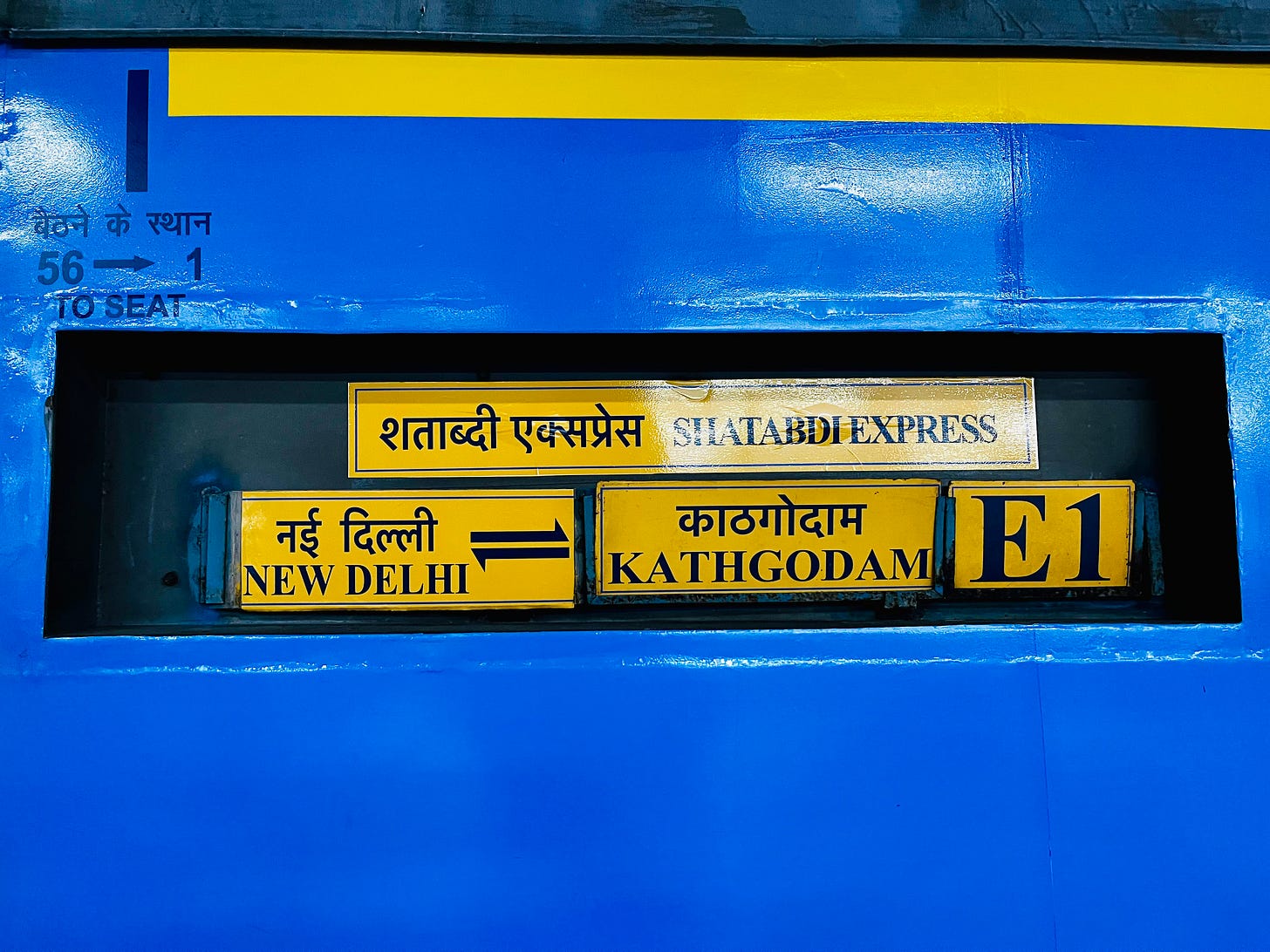On the comets of chance

As I read Maria Popova’s Figuring on my flight to New Delhi, this beautifully crafted sentence stops me in my tracks:
Comets of chance and tides of circumstance sculpt the shorelines of the self to make us who we are — we can no more claim all credit for our achievement than deflect all blame for our impediments, and it is often difficult to separate the elements of life that make for fortune from those that make for misfortune.
She says this while introducing the concept of genius loci or ‘spirit of a place’, citing the life of Maria Mitchell, as an example — whose breakthroughs demonstrate the profound influence that place and circumstance can have on one’s future success. Born in Nantucket to a progressive family, a rare occurrence during a largely conservative era, Mitchell used her father’s telescope to discover a comet, later named after her. This initiated a series of events that led to her becoming the first internationally-recognized woman astronomer.
Similarly Vera Rubin, the first scientist to confirm the existence of dark matter, was enthralled by the night sky from an early age but didn’t have any female role models in astronomy, until she discovered a children’s book with Mitchell’s story, leading her to converting her hobby into a vocation.
These tales of unexpected influences resonate deeply with me, reminding me of my own life trajectory and the serendipity that has led me to where I am today. Like the figures in Popova’s book, I remember my teenage fascination with the cosmos — sparked initially by Stephen Hawking’s George’s Secret Key to the Universe. This early interest led me to explore Einstein’s theories of relativity for a school competition, with many late nights spent watching YouTube tutorials to grasp the concept of space-time.
Since then, much has changed. I moved from astrophysics to the humanities — yet, I vividly remember a job interview from years ago where I explained the curvature of space-time through the analogy of a large ball pressing on a trampoline and causing a smaller ball to orbit around the resulting depression, simplifying the complex idea for the interviewer.
But such is the arc of life. My shift to international relations was influenced in no small part by the transformative experiences and exemplary mentors I had. Two of my favourite teachers in school taught the social sciences and profoundly impacted me, so much so that I dedicated my undergraduate thesis to them. Moreover, a nomination to a young leader’s program in the US back in the final year of highschool introduced me to debating and diplomacy, with a faculty advisor there nudging me to pursue a career in foreign policy.
To think that these series of interactions — some not more than a few sentences and kind smiles long — have decided the very trajectory I’ve been on over the last decade: the people I’ve met, the friends I’ve made, the relationships I’ve had, the jobs I’ve done, and the words I’ve written.
During this period, I also found a role model in Shashi Tharoor — more for his writings and international diplomacy than his domestic politics. His campaign as India’s nominee for UN Secretary-General, though ultimately unsuccessful, marked the first time I saw someone like me in such a prominent role; someone I could truly look up to.
As a young student of international relations, I openly aspired to follow in Tharoor’s footsteps, dreaming of becoming an Indian Ambassador, or even UN Secretary-General — these ambitions have since been tempered, partly due to aptitude, but mostly due to the dynamic nature of aspirations in the face of changing circumstances.
I like to think that if these experiences, mentors, and role models had been in the realm of physics, I could very well have pursued that field, albeit perhaps not successfully. For better or worse, my physics and chemistry teachers employed a more rigid, fear-based approach to education, which, while effective in driving academic performance, ultimately diminished my passion for the subjects.
Reflecting on the stories of Mitchell and Rubin, along with my own experiences, it is evident that mentors and our environments significantly shape our lives. They help us see the beauty in our pursuits, recognize potential even when we doubt ourselves, and ignite a passion for paths we might not have taken otherwise. The impact of formative teachers, mentors, and role models cannot be overstated; they are, perhaps, the most significant influences on our life’s trajectory, shaping our future through guidance, inspiration, and occasional redirection.

The following day, as the Shatabdi train wound its way from Delhi to the foothills of the Himalayas, I found myself seated next to a young boy whose enthusiasm was immediately apparent. He sparked up a conversation, his face lighting up when I mentioned my academic research in international relations. Eager to hear more, he expressed his ambition to become a diplomat and peppered me with questions about my experiences, views on foreign policy, and my academic research. Although a part of me saw in his aspirations a trace of youthful innocence, it also filled me with joy as it reminded me of my own latent curiosity.
From this 16-year-old, I learned — or perhaps relearned — the importance of nurturing that childlike excitement and spirit of exploration; the kind I felt for Einstein’s theories back in the day. His unbridled curiosity to be anything and anyone, to dream big, to voice opinions boldly, and to engage strangers in deep conversations about ambitions without fear of judgment, was profoundly inspiring. Had he not instigated the conversation, I’d have sat quietly for the whole journey and would have been all the poorer for it.
He confidently shared his desire to join the Indian Foreign Service, stating it so matter-of-factly that I couldn’t help but be impressed. And why shouldn’t he be confident? In today’s India, foreign policy holds a stature it lacked a decade ago when I was entering the field. The country now asserts its influence boldly, as people involved with the UK-India trade deal have told me, to give just one example. Dr. S Jaishankar, the country’s Foreign Secretary, whose popularity is only rivalled by that of Prime Minister Modi, exemplifies this new assertive stance. And New Delhi hosts the annual Raisina Dialogue, a multilateral event on geopolitics and geo-economics that rivals Germany’s Munich Security Conference and Singapore’s Shangri-La Dialogue. No wonder this young man felt empowered to pursue such ambitious goals — this is the India, with its concentration of genius loci, I had hoped to have had access to when I was cutting my teeth in the field.
Although our encounter was brief, his determination left a lasting impression. It gave me hope that even if some doors have closed for me, they might open for others. After all, the journey of a dream doesn’t end as long as there are others to dream it new, to dream it bigger.
Some handpicked reads for this week
Read: Lament for the Declining Art of Editing by Damon Linker, Notes from the Middleground.
Why read? Damon Linker critiques the recent trend among musicians, including Taylor Swift, to release extensive catalogs of music without stringent editorial oversight. This practice, Linker argues, has diluted the quality of music that reaches the public. By exploring the historical context of musical constraints and comparing editing processes from the vinyl era to the streaming age, Linker makes a compelling case for the critical role of editing in enhancing artistic quality.
Favourite quote: “Editing isn’t just about fiddling around the margins with something already great. It’s the process of finding what’s potentially great amidst the merely good or even pedestrian and refining it until it achieves its highest potential. Without it, we run the risk of drowning in a sea of the merely ‘mid’.”
Read: Kant vs the Algorithm by Luke Hallam, Persuasion.
Why read? Luke Hallam discusses Immanuel Kant’s enduring relevance —particularly his essay ‘What is Enlightenment?’ — connecting Kant’s advocacy for independent thought and the use of public reason to contemporary challenges posed by political, commercial, and technological pressures that limit such freedom. This article scrutinizes how modern incentives, like social media algorithms and political lobbying, undermine our ability to think and express ourselves freely, contrasting sharply with Kant's ideals.
Favourite quote: “Kant argued that ‘Rules and formulas, those mechanical aids to the rational use, or rather misuse, of [a person’s] natural gifts, are the shackles of a permanent immaturity.’ Aren’t we increasingly constrained by ‘rules and formulas’ in the form of algorithms and reward-feedback systems that force us to tailor our expression in drastic ways?”



